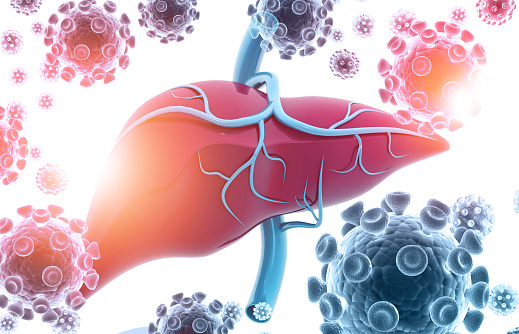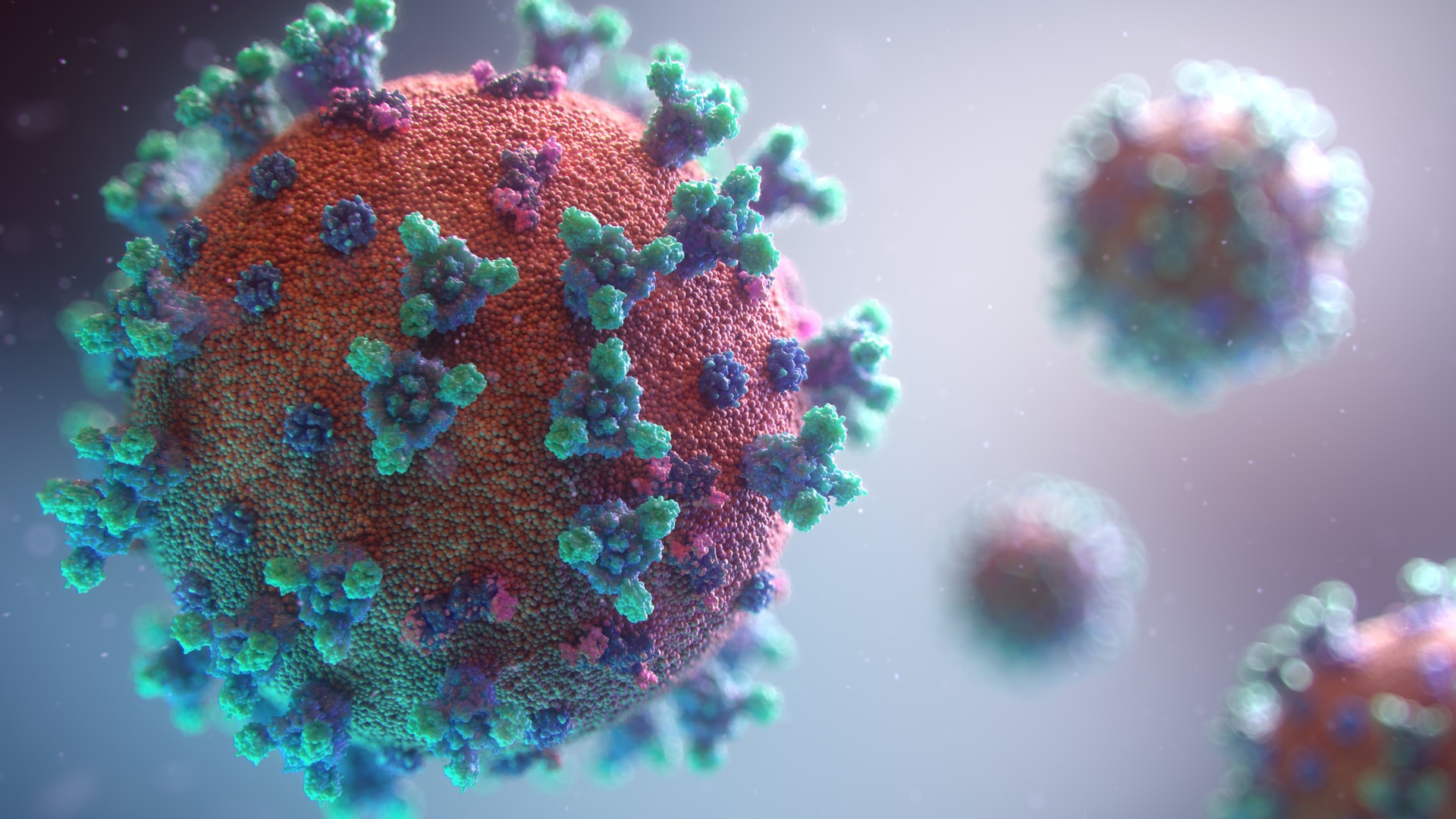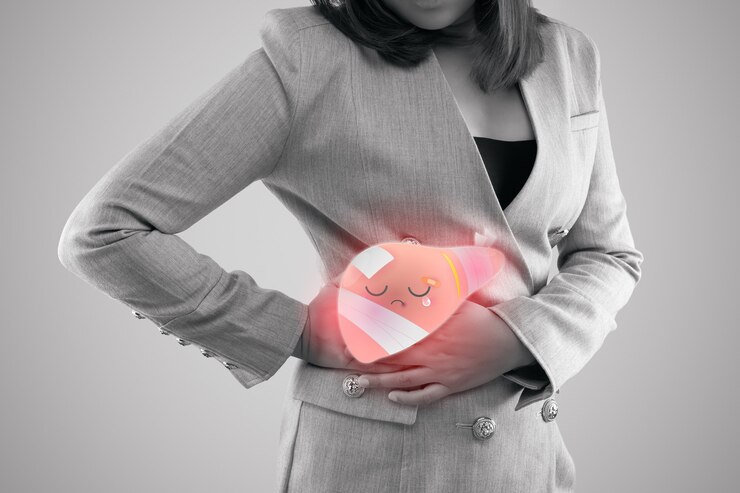Coronavirus Effects On The Liver – COVID And Liver Symptoms
Coronavirus effects on liver damage are characterized by reduced albumin and raised aminotransferase and bilirubin levels.
Author:Suleman ShahReviewer:Han JuJul 19, 20226 Shares301 Views

Although coronaviruses have been extensively researched as respiratory tract infections, coronavirus effects on the liverhave been rare.
Coronavirus effects on liver damage are characterized by reduced albumin and raised aminotransferase and bilirubin levels.
Direct damage, immune-mediated injury, ischemia and hypoxia, thrombosis, and medication hepatotoxicity are the pathophysiological explanations explored.
Coronavirus infection has been shown to alter the incidence, severity, prognosis, and treatment of pre-existing liver disease.
Hepatotoxicity is also seen in drugs and vaccinations used to treat and prevent coronavirus infection.
Establishing optimum treatment for coronavirus infection and liver disease comorbidity is significant, necessitating more safety studies, animal experiments, and clinical trials.
Coronavirus Infection Causes Liver Damage
Coronavirus infections are defined by persistent fever, cough, tiredness, dyspnea, arthralgias, and a reduction in serum white blood cells. MERS-CoV infection has been associated with the most severe acute liver damage among the three significant coronaviruses.
In the early stages of SARS and MERS, liver damage is characterized by moderate elevations in ALT, AST, and bilirubin. In extreme instances, albumin levels drop (26.3-30.9 g/L) and are associated with illness severity and death.
Liver biopsies from SARS patients exhibited significant increases in eosinophilic bodies and balloon-like hepatocytes, suggesting that coronavirus may induce hepatocyte necrosis.
Patients with SARS-CoV-2 infection show mild microvascular steatosis and moderate lobular and portal inflammation.
Coronavirus-Related Liver Injury Mechanisms
- ACE2/DPP4-Mediated Damage to Hepatocytes:RAS proteins are encoded by Ras sarcoma oncogenes and are members of a class of small GDP/GTP-binding guanine triphosphatases that play essential roles in cellular activities including proliferation, migration, adhesion, and differentiation. RAS signaling dysfunction arises in a variety of human illnesses. ACE2 participates in the RAS signaling cascade by upregulating angiotensin II, which promotes atherosclerosis, inflammation, and endothelial cell migration. Because bile duct cells are crucial for hepatic regeneration and immunological function, the elevation of ACE2 expression in hepatocytes might result in compensatory proliferation from bile duct cells, resulting in liver damage. In individuals with coronavirus infection, liver injury may be caused by bile duct epithelial destruction rather than hepatocyte alterations. Numerous studies have shown that liver cirrhosis significantly increases ACE2 expression in hepatocytes. Coronavirus pathogenicity in the liver is increased by high ACE2 expression. MERS-CoV may infiltrate hepatocytes through DPP-4 and induce hepatocyte damage. Dipeptidyl peptidase 4 degrades a wide range of chemokines and peptide hormones important in immune system control.
- Immune-Mediated Injury: Coronaviruses trigger the immune systemwhen they enter the human body. The liver is essential in immunological activities because it contains many immune cells that engage in the immune response. In individuals with severe coronavirus infection, liver cells exhibit a variety of inflammatory alterations, including swelling and steatosis. Ischemia and hypoxia caused by cytokines may result in hepatocyte damage and necrosis. Coronavirus-induced cytokine storms may be essential mediators of liver damage. IL-2-receptor and IL-6 levels in the blood of SARS-CoV-2 patients were also observed to be higher.
- Ischemia and Hypoxia:Increased transaminases in the serum may indicate hypoxic liver damage owing to oxygen supply imbalance. Patients with SARS-CoV-2 infection had varying degrees of hypoxemia, with more than 40% necessitating oxygen therapy. Another well-known degenerative process is hepatic ischemia-reperfusion injury (HIRI), which is linked to reactive oxygen species (ROS), neutrophils, Kupffer cells, and calcium excess. In HIRI, glycogen consumption and adenosine triphosphate depletion may disrupt the cell survival signaling pathway in hepatocytes, resulting in the necrosis of these cells. ROS and its per-oxidized forms may disrupt redox processes and stimulate the release of pro-inflammatory chemicals, resulting in hepatic damage.
- Thrombosis:COVID-19 individuals with thrombotic events showed substantially elevated ALP levels, while ALP levels were normal or marginally elevated in patients who did not have these events. SARS-CoV has been linked to hypercoagulable states in patients, raising the risk of disseminated intravascular coagulation. Elevated D-dimer levels, fibrin degradation products, and delayed prothrombin time have all been linked to a poor outcome in SARS CoV-2 patients. Autopsies from Wuhan revealed hepatocyte degeneration, lobular necrosis, and neutrophil infiltration in the liver.
- Drug Hepatotoxicity:After viral hepatitis and alcoholic/non-alcoholic fatty liver disease, hepatotoxicity is the third leading cause of liver damage. Ribavirin and corticosteroids were the most often prescribed drugs for SARS patients. Acetaminophen is known to cause liver damage, and an acetaminophen overdose may cause severe liver damage or even liver failure. Lopinavir, abidor, ritonavir, and other antiviral medications have been used to treat COVID-19 patients.
Coronavirus Infection And Pre-Existing Liver Disease
Liver disease is one of the most severe disease loads, responsible for around 1 million deaths globally each year. Patients with liver cirrhosis or cancer are often immunocompromised and may be more vulnerable to SARS-CoV-2 infection.
- Coronavirus Influence On HBV And HCV Hepatitis:The impact of coronavirus infection on the progression of HBV and HCV has received much attention. Because SARS-CoV coinfection increased hepatitis virus proliferation, patients with COVID-19 were more likely to develop liver damage and severe hepatitis. SARS patients with acute hepatitis and decompensated liver cirrhosis are more likely to die. When developing individualized treatment strategies for patients with HBV and HCV infection, clinicians should consider the existence of coronavirus infection and its consequences. Treatment recommendations for COVID-19 patients with advanced liver disease must reduce the risk of liver damage or failure.
- Coronavirus Effect On Liver Cirrhosis: COVID-19 severity and the frequency of severe consequences increase in people with liver cirrhosis and coronavirus infection. A clinical trial found that SARS-CoV-2 infection may cause a fast decline. More research is required to understand the impact of increased ALT on disease progression fully. Because the liver gets infiltrated with a significant number of macrophages, potential cytokine makers following SARS-CoV-2 infection may indirectly engage in acute inflammatory activity. Consequently, monitoring hepatic bio-parameters in patients regularly may aid in detecting liver damage and lower the risk of unwanted effects.
- Coronavirus Effect On Liver Cancer: Patients with liver cancer are more vulnerable to coronavirus infection if they get chemotherapy or immunotherapy in the hospital. COVID-19 was found in 0.79% of cancer patients at a hospital in Wuhan, which was higher than the whole population. Screening for esophageal varices and liver cancer has been postponed for all but the most at-risk individuals. According to the American Association for the Study of Liver Diseases (AASLD) guidelines, it is reasonable to defer liver cancer monitoring for two months. Treatment changes may have elevated the likelihood of variceal bleeding and distant metastases of liver cancer.
- Coronavirus Effect On Liver Transplantation: Because of their immunocompromised status, people who have had a liver transplant are more likely to get infected and have a severe course of COVID-19. These patients are thought to be more vulnerable to SARS-CoV-2 infection. Patients with pre-existing liver illness should undergo antiviral therapy as soon as possible. To prevent additional transmission, strict screening standards must be established for organ recipients and donors with coronavirus infection.
Coronavirus Treatments Effects On The Liver
- Remdesivir:Remdesivir is an antiviral medication in clinical trials for treating SARS-CoV-2 infection. It was initially used to treat Ebola virus infection, and clinical trials are currently ongoing. In one research, three individuals had nausea, vomiting, gastroparesis, rectal bleeding, and elevated ALT and AST values 1-5 days after taking medicine. There is currently insufficient evidence to provide a definitive adverse impact profile but calls for more clinical research.
- Lopinavir and ritonavir:Lopinavir and ritonavir, both HIV protease inhibitors, are FDA-approved HIV-1 medications. Pancreatitis, hepatitis, liver decompensation, extended PR intervals, and congenital QTc prolongation were all reported in ICU patients. The administration of these medications seems to be used exclusively for patients in the early stages of SARS-CoV and MERS-CoV infection. Overexposure to these medicines may also affect the equilibrium of internal and exterior Ca2+ concentrations and impair the bio function of critical organelles (including mitochondria and ER).
- Interferon:Interferon is a signaling molecule released by host cells in response to a pathogen. Increased interferon levels stimulate the immune system, causing it to remove infections and prevent pathogen proliferation. Interferon stimulates efficient host-mediated immunological activity, which has been proven beneficial in treating viral infections (including HBV and HCV) and cancer. Nonetheless, patients who get interferon produce neutralizing antibodies, which reduces the effectiveness of viral eradication.
- Baricitinib:Baricitinib is a JAK-STAT inhibitor used to treat individuals with rheumatoid arthritis who cannot take more than one TNF antagonist. Barcitinib has been shown to reduce the hyperinflammatory state during SARS-CoV-2 infection and may help prevent endocytosis and viral infection by inhibiting AAK1 activity. Scientists should be concerned about the growing number of reports of infections and thrombosis after taking JAK inhibitors to treat COVID-19. We should also investigate unfavorable hepatic consequences, including liver damage, cholestasis, and hepatitis, which occurred in many instances. To the best of our knowledge, this is the first significant evidence for a possible link between baricitinib and drug-induced liver damage.
- Tocilizumab:Tocilizumab is a monoclonal antibody that targets IL-6 receptors and was first used to treat rheumatoid arthritis. According to research from a medical facility in Wuhan, 20 severe COVID-19 patients showed a quick drop in fever after adding tocilizumab to lopinavir, methylprednisolone, and oxygen treatment, increasing oxygenation efficacy to 5% and hospital release rate to 95%. Tocilizumab may cause a mild increase in serum aminotransferase, which is generally transient and asymptomatic, but it has also been linked to jaundice and HBV reactivation. Tocilizumab should be avoided if serum neutrophils are less than 1,000 cells/mm2, platelets are less than 100,000 cells/mm2, and liver enzymes are more than three times the normal upper range.
Coronavirus Vaccine Effects On The Liver
Vaccines against SARS-CoV-2 will be critical in preventing the virus's spread and reducing societal hysteria. Many factors must be addressed to avoid an activated innate inflammatory response, an increased frequency of autoimmune disorders, and vaccine-induced liver damage.
Since July 2nd, 2020, there have been 158 COVID-19 vaccine candidates, 135 of which are in the preclinical or development stage. Preclinical research using a putative mRNA target produced from lipid nanoparticles for Crigler-Najjar syndrome revealed vaccine hepatotoxicity.
The DNA plasmid's double-stranded structure is viewed as a material that activates the immune system through non-TLR pathways.
Even though the rabies vaccination was usually safe, self-limited side effects were detected in a clinical experiment. It is unknown what function greater liver disease severity has in influencing immunological response to COVID-19 vaccination.
Patients with severe liver disease and those who have had a liver transplant for more than three months should be given priority.
Patients with chronic liver disease who use antivirals or immunosuppressive medications should not discontinue them before or after immunization. Many clinical studies on people with liver disease are now taking place globally.
People Also Ask
Does COVID Affect Liver And Kidneys?
According to studies, COVID-19 may harm the liver and kidneys, making it harder to get the therapeutic dosage of the medications and increasing the risk of severe drug responses in patients.
Who Are At Higher Risk Of Developing Serious Illness From COVID-19?
People over 65 and those with underlying medical conditions such as cardiovascular disease, diabetes, chronic respiratory disease, and cancer are more prone to severe illness.
What Are The Complications Of COVID-19?
Pneumonia, acute respiratory distress syndrome, multi-organ failure, septic shock, and death are all possible complications.
What Are The Organs Most Affected By COVID‐19?
COVID19 has the greatest impact on the lungs.
Conclusion
Our knowledge of coronaviruses, including their diagnosis, treatment, and prevention, is quickly developing.
As the pandemic progresses and new data emerges, it is critical to investigate the coronavirus effects on the liver and identify risk factors for hepatic consequences in individuals infected with the coronavirus.
There is an urgent need to create clinical guidelines for people with liver disorders who have coronavirus infections.
A thorough record of individuals with coronavirus infection, including systematic recording of clinical information and liver illnesses, will be vital in identifying hepatic problems, developing risk models for hepatic complications, and predicting response to therapy.

Suleman Shah
Author
Suleman Shah is a researcher and freelance writer. As a researcher, he has worked with MNS University of Agriculture, Multan (Pakistan) and Texas A & M University (USA). He regularly writes science articles and blogs for science news website immersse.com and open access publishers OA Publishing London and Scientific Times. He loves to keep himself updated on scientific developments and convert these developments into everyday language to update the readers about the developments in the scientific era. His primary research focus is Plant sciences, and he contributed to this field by publishing his research in scientific journals and presenting his work at many Conferences.
Shah graduated from the University of Agriculture Faisalabad (Pakistan) and started his professional carrier with Jaffer Agro Services and later with the Agriculture Department of the Government of Pakistan. His research interest compelled and attracted him to proceed with his carrier in Plant sciences research. So, he started his Ph.D. in Soil Science at MNS University of Agriculture Multan (Pakistan). Later, he started working as a visiting scholar with Texas A&M University (USA).
Shah’s experience with big Open Excess publishers like Springers, Frontiers, MDPI, etc., testified to his belief in Open Access as a barrier-removing mechanism between researchers and the readers of their research. Shah believes that Open Access is revolutionizing the publication process and benefitting research in all fields.

Han Ju
Reviewer
Hello! I'm Han Ju, the heart behind World Wide Journals. My life is a unique tapestry woven from the threads of news, spirituality, and science, enriched by melodies from my guitar. Raised amidst tales of the ancient and the arcane, I developed a keen eye for the stories that truly matter. Through my work, I seek to bridge the seen with the unseen, marrying the rigor of science with the depth of spirituality.
Each article at World Wide Journals is a piece of this ongoing quest, blending analysis with personal reflection. Whether exploring quantum frontiers or strumming chords under the stars, my aim is to inspire and provoke thought, inviting you into a world where every discovery is a note in the grand symphony of existence.
Welcome aboard this journey of insight and exploration, where curiosity leads and music guides.
Latest Articles
Popular Articles

